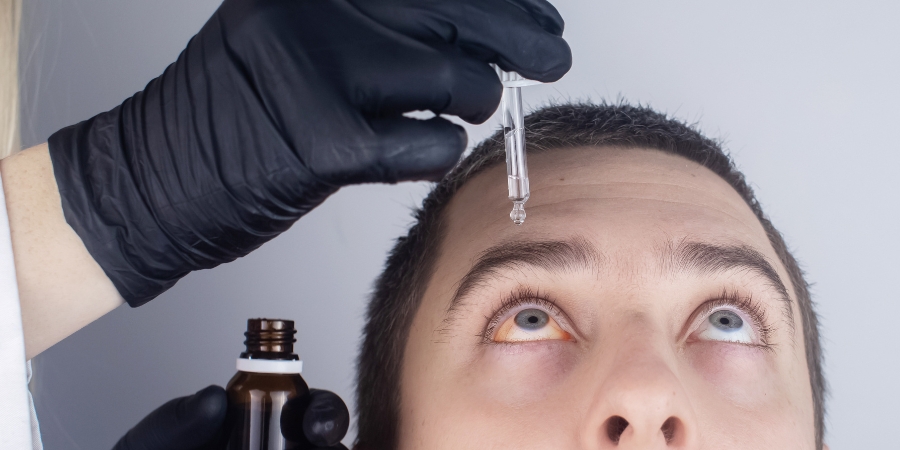All Categories
Featured

While the majority of people understand the importance of protecting their skin from the sunlight, the unsafe effects of ultraviolet (UV) rays on eye health usually go forgotten. Excessive exposure to UV radiation can lead to an array of eye problems, some of which can result in long-term damages. Whether you're absorbing the sunlight on a summertime day or strolling outdoors on a cloudy afternoon, guarding your eyes from UV rays is important. Right here's what you need to find out about the results of UV radiation on your eyes and exactly how to protect them.
What Are UV Rays? UV rays are a type of electromagnetic radiation emitted by the sun. They are classified into 3 types:
UVA Rays: These permeate deep right into the skin and eyes and can add to long-term damages. UVB Rays: These rays are a lot more intense than UVA and are largely liable for surface-level damages to the eyes and skin. UVC Rays: These are the most damaging yet are mainly soaked up by the Planet's ozone layer and do not generally reach us. UVA and UVB rays are the main culprits behind eye-related damage.
Short-Term Results of UV Exposure on the Eyes. Even temporary exposure to intense UV rays can hurt your eyes. One typical problem triggered by this is photokeratitis, or "sunburn of the eye." Symptoms of photokeratitis consist of:
Unpleasant, red eyes. Sensitivity to light. Tearing or extreme watering. Short-lived vision loss or blurred vision. Photokeratitis is typically temporary, but it serves as a caution of how damaging UV exposure can be, even in small dosages.
Long-Term Impacts of UV Exposure. Prolonged direct exposure to UV radiation can lead to much more serious and irreversible eye conditions, such as:
Cataracts: UV rays can speed up the formation of cataracts, a condition that causes clouding of the eye's all-natural lens, leading to fuzzy vision and, if untreated, blindness.

Macular Degeneration: UV direct exposure can damage the retina, specifically the macula, raising the danger of age-related macular deterioration (AMD), which impacts main vision.
Pterygium: A growth of cells on the white part of the eye that can extend over the cornea, creating pain, soreness, and vision issues.
Pinguecula: UV exposure can cause yellowish down payments to base on the conjunctiva, causing irritation and dryness.
Skin Cancer Cells Around the Eyes: The delicate skin bordering your eyes is very susceptible to UV radiation, raising the danger of skin cancers like basal cell carcinoma and squamous cell cancer.
Just How to Shield Your Eyes from UV Rays. Securing your eyes from UV rays is basic and needs a few mindful routines:
Buy High Quality Sunglasses: Select sunglasses that block 100% of UVA and UVB rays. Seek tags that specify "UV 400" security. Wrap-around styles are optimal as they obstruct UV rays from the sides also.
Put On a Wide-Brimmed Hat: A hat with a border at the very least 3 inches vast can significantly minimize UV exposure to your eyes and face.
Restriction Exposure Throughout Optimal Hours: UV rays are strongest in between 10 a.m. and 4 p.m. If you should be outdoors throughout these hours, make certain you're appropriately safeguarded.
Don't Be Fooled by Clouds: UV rays can permeate through clouds, so it is essential to put on sunglasses also on overcast days.
Safeguard Your Eyes Year-Round: Snow, sand, and water can mirror UV rays, increasing their results. Eye protection isn't simply for sunny summer season days-- guarantee you're covered in all seasons.
Usage UV-Blocking Call Lenses: Many get in touch with lenses currently come with UV defense. If you wear calls, ask your eye doctor about lenses with integrated UV filters for added defense.
Urge Eye Protection for Children: Kid's eyes are a lot more sensitive to UV rays since their lenses are clearer, allowing even more radiation to get to the retina. Ensure they wear sunglasses and hats during outdoor tasks.
Normal Eye Examinations. Routine check-ups with an eye treatment expert are essential for early detection of any kind of UV-related damages. An eye doctor or eye doctor can evaluate your eyes, advise protective actions, and identify problems like cataracts or macular degeneration at an early stage.
Conclusion. By wearing UV-blocking sunglasses, restricting sunlight exposure during top hours, and staying regular with eye examinations, you can guarantee your eyes remain healthy and balanced and your vision remains clear for years to come. Safeguarding your eyes from UV radiation isn't simply concerning comfort-- it's an essential step in protecting your lasting eye wellness.
Latest Posts
Check Out the Premier Auto Repair Offers in Montclare, Chicago
Join Your Financial Partner at WyHy – Key Tools for Your Financial Success
Explore WyHy FCU – Top Benefits for Your Financial Success
More
Latest Posts
Check Out the Premier Auto Repair Offers in Montclare, Chicago
Join Your Financial Partner at WyHy – Key Tools for Your Financial Success
Explore WyHy FCU – Top Benefits for Your Financial Success